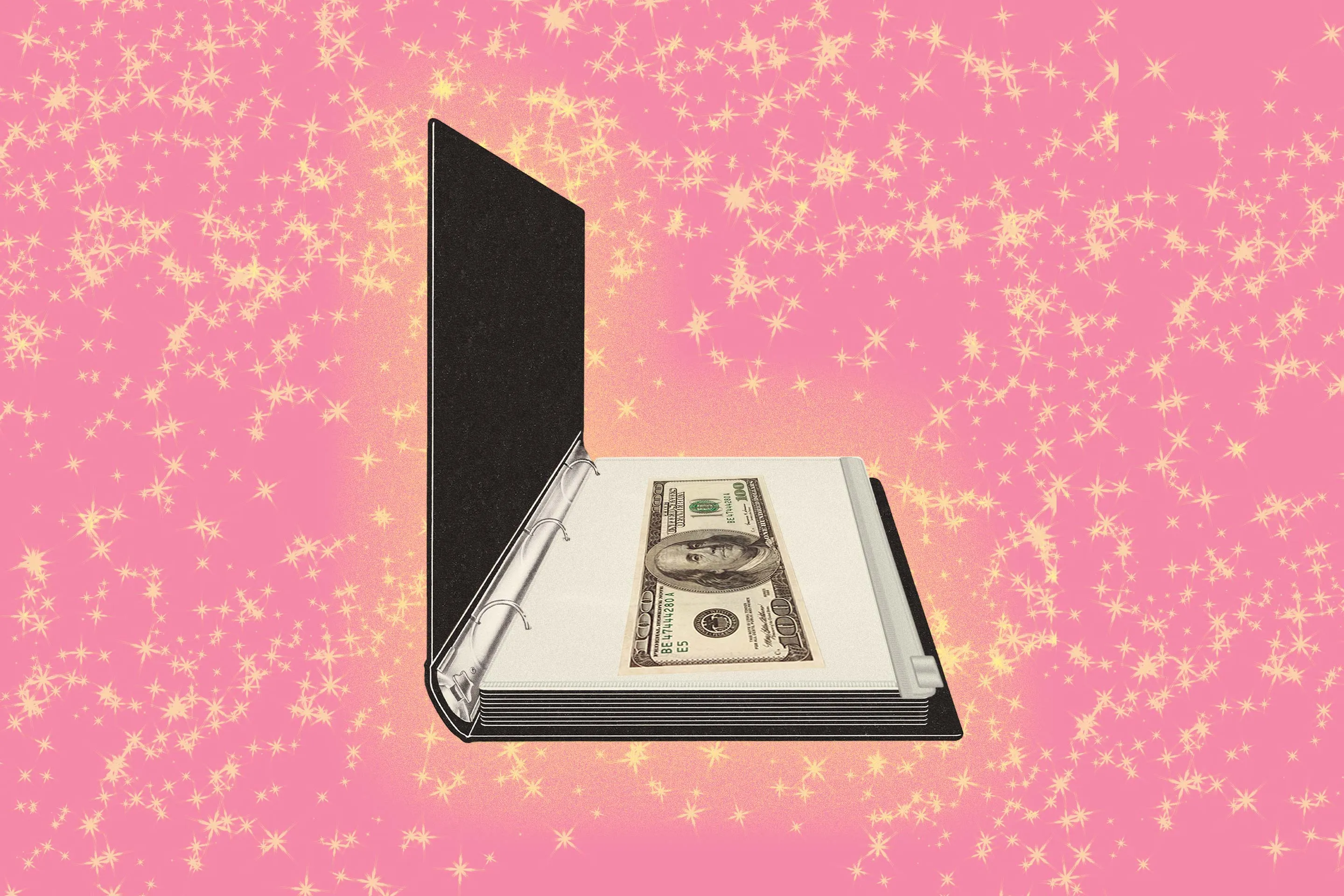Budgeting works, but it's not exactly fun: No one expects you to sit down with markers and a stack of credit card statements to make tough decisions about your spending.
Or at least they weren't before state employees came on the scene.
On TikTok, budgeting is becoming—dare we say it—cool. The creators are turning what was once a chore into a completely aesthetic experience, complete with fun fonts, glitter, and ASMR of shuffling crisp bills in front of the camera.
One user, mothertherese_, has received over a million views demonstrating her strategy for distributing the money she makes from working as a waitress and bartender at Texas Roadhouse. Still in uniform, mothertherse_ happily zips 10 and 20 notes into clear envelopes labeled “gas”, “rent”, “room stuff” and so on, all glued into a soft pink binder.
What's behind the budget folder boom and is it a good strategy?
Why budget folders are so popular now
Priya Malani, founder and CEO of Stash Wealth, says she understands their appeal: “People are craving stability at a time when that's not how the headlines read,” she says, and physically being able to store their hard-earned money is a challenge. goes a long way towards making people feel financially secure.
Using fiat currency is a completely different experience than using digital currency (or mindlessly tapping the phone at the till). By dealing with real dollars, Malani says, spenders often feel more responsible for their money. This makes it harder to quote and unquote “waste”, which is good if you're trying to cut down on unnecessary expenses.
Malani stresses that budget folders are not a new idea. “They're the resurgence of a trend that was stifling the population for a while and then disappeared as quickly as it came,” she says, comparing them to low-rise jeans and clear shoes.
As glitzy as they may appear on social media, budget folders are just the latest twist on the money envelope system made popular decades ago by controversial money guru Dave Ramsey. The idea is that you can keep track of exactly how much money you have by relying on physical cash in stamped envelopes. You can actually see how much you have left, and once that supply runs out, you won't be able to buy anything else in a certain category for a month. This can help you avoid overspending and going into debt (Ramsey's big no-no).
“What's old is new again,” quips Jeremy Zook, a financial planner at Abundo Wealth.
Do budget binders really work?
Whether you call it budget filing, the envelope system, or money stuffing, the underlying motivation is good. Zuke notes that Americans as a whole tend to not save enough money—about 37% of people say they can't afford unexpected expenses greater than $400—and this could be a solution to the problem.
“Anything that encourages frugal behavior, even if it's a really nice folder that you just love, is good in itself,” he says.
It can also help you be more conscious of your spending. By breaking down your spending into more specific categories and assigning a goal to each dollar, you'll be less likely to spend that money on random impulse purchases.
Zuka was especially encouraged by the budget folder videos, which showed people holding “Christmas” envelopes. Every January, he says, his clients say they feel confused by the holidays. However, holidays occur at the same time every year; these clients just need to plan better.
In this sense, budget constraints can be a smart “temporary mindfulness exercise,” Malani says. If your credit card bills are out of control or you're spending recklessly, detailing and analyzing your cash flow can definitely help you reset.
“A cash-based budgeting system is certainly better than no system at all,” she adds.
Disadvantages of budget binders: no insurance, interest or rewards.
Unfortunately, budget constraints are not necessarily a good long-term approach.
In the past, Malani says, the cash envelope method worked well for people because they had no choice. We were a cash-based society; the strategy “rose to the top because it was the only option,” she says.
However, in 2024 we have alternatives. By keeping your money in cash in a folder (or envelope), you forfeit Federal Deposit Insurance Corporation or FDIC insurance, which protects up to $250,000 per depositor, per bank, per account type, in the event of a failure. The folder is not insured – it can be lost, someone can steal it, and so on.
You also give up any rewards you might have earned if you had spent the money with a credit card instead. Credit cards also offer many of their own protections, including the ability to dispute charges and protect you from liability in the event of fraud.
If you use budget anchors for long-term savings goals, like some TikTok creators, you also don't earn interest. Zuke notes that this is an especially big mistake now that interest rates on high-yield savings accounts are higher than usual due to the economic climate.
The best budget system is the one that fits your lifestyle. But new or not, budget folders aren't necessarily the safest way to spend and save in the long run. Ideally, you want to get the most out of your money, and there are probably better ways to do that.
“Just because these systems are efficient doesn’t mean they are mathematically the most efficient,” Malani says.
More money:
Loud budgeting is the first viral money trend of 2024, but does it work?
Why “Girl Math” Can Actually Get a Lot of Value for Your Money
Budgeting 101: How to Budget Money
